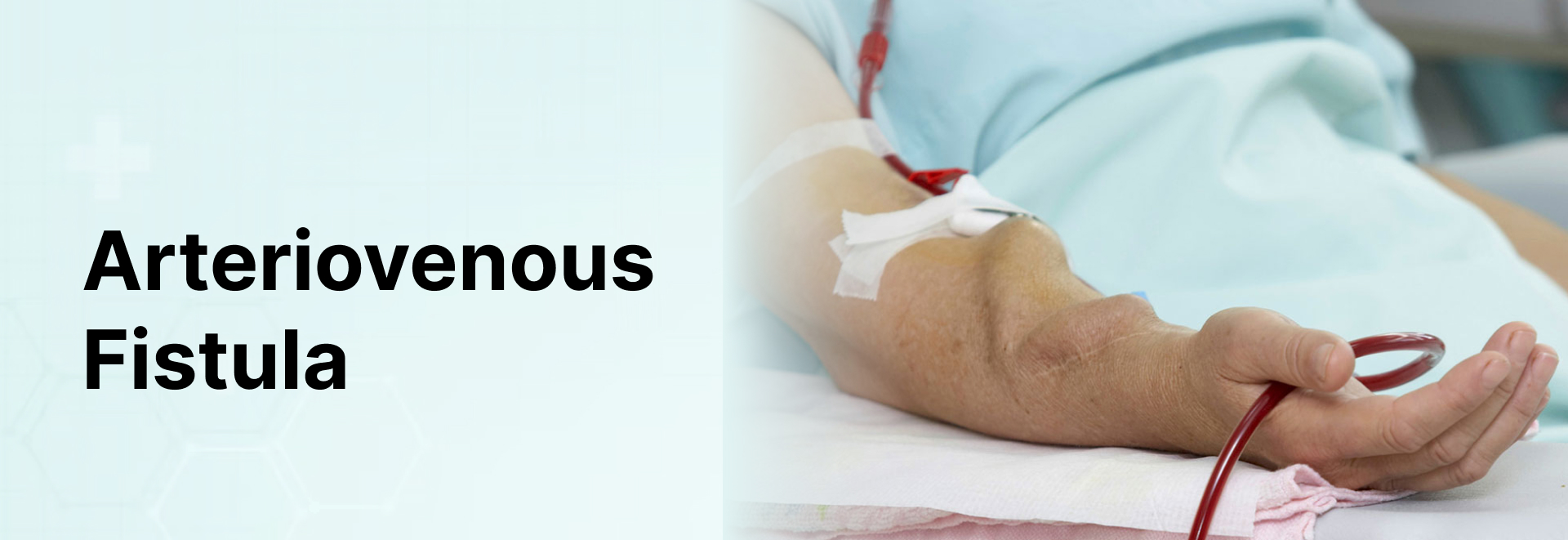
Arteriovenous Fistula
An irregular link between an artery and a vein is known as an Arteriovenous (AV) Fistula. Typically, blood travels from the arteries to the capillaries, then to the veins. The capillaries in the blood transport nutrients and oxygen to the body’s organs.
Blood flows straight from an artery into a vein through an arteriovenous fistula, skipping some capillaries in the process. Less blood is delivered to the organs below the avoided capillaries as a result.
Although they can form anywhere on the body, arteriovenous fistulas typically affect the legs. For use in dialysis, an arteriovenous fistula may be surgically created in patients with severe kidney failure.

Symptoms
There are frequently no symptoms or indications associated with small arteriovenous fistulas in the legs, arms, lungs, kidneys, or brain. Small arteriovenous fistulas typically only require surveillance by a medical professional. Signs and symptoms of large arteriovenous fistulas are possible.
Arteriovenous fistula signs and symptoms may include:
- Purplish, bulging veins seen through the skin, similar to varicose veins
- Swelling in the arms or legs
- Decreased blood pressure
- Fatigue
- Heart failure
A significant arteriovenous fistula in the lungs (pulmonary arteriovenous fistula) is a serious condition and can cause:
- Pale grey or blue lips or fingernails due to lack of blood flow (cyanosis)
- Fingertips to spread out and become rounder than normal (clubbing)
- Coughing up blood
An arteriovenous fistula in the digestive tract can cause gastrointestinal (GI) bleeding.
Causes
Arteriovenous fistulas may be present at birth (congenital) or they may occur later in life (acquired). Causes of arteriovenous fistulas include:
Injuries That Pierce The Skin
An arteriovenous fistula may develop following a gunshot or stabbing injury to a part of the body where an artery and vein are near one another.
Congenital Arteriovenous Fistulas
Some babies develop their arteries and veins incorrectly while they are still in the womb. Unknown as to why exactly this is happening.
Genetic Conditions
Pulmonary arteriovenous fistulas, or arteriovenous fistulas in the lungs, can occur from a genetic condition that causes abnormal blood vessels throughout the body, particularly in the lungs. One such condition is Osler-Weber-Rendu disease, often known as hereditary hemorrhagic telangiectasia.
Dialysis-related Surgery
Patients with advanced renal failure may undergo surgery to open an arteriovenous fistula in their forearm, making it easier to give dialysis.
© Triage Healthcare All rights reserved — Made by Rittz Digital


